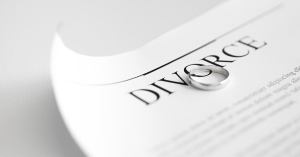Senate Majority Leader Mitch McConnell did include a new $1,200 economic impact payment in his HEALS Act proposal, just days before the Commerce Department released the worst GDP report ever. It also comes as the recovery that began picking up in May and June began to slow in July. The new stimulus payment could help, but the impact of the first stimulus check included in the CARES Act did not last long as many Americans used it for immediate needs, proving that a stimulus package needs more than direct payments to help the economy.
The CARES Act included a $1,200 payment for individual American taxpayers earning $75,000 or less in the tax year 2018 or 2019, and a check double that size for joint-filers. The HEALS (Health, Economic Assistance, Liability Protection, and Schools) Act will include a similar program, although there are some small changes. Anyone earning over $75,000 will not be eligible for any payment. In the CARES Act, individuals earning over $75,000 but less than $99,000 were eligible for a check less than $1,200, based on their income.
Videos by PopCulture.com
The first stimulus check was mailed out to Americans in mid-April. In May, House Democrats passed the HEROES Act, which also included a $1,200 payment. Senate Republicans refused to take up the bill though, and it never became law. In mid-May, Kellogg Insight published early research by a group of economists who found that the payment did not have that much of an impact on the economy, reports Forbes.
According to the study, people who had $3,000 or more in their checking accounts had no response to the stimulus check, and simply let it sit in the bank. However, those with $500 or less in the bank spent almost half of their stimulus payment within 10 days. The researchers found that people spent more of their check on immediate essentials, like food, household items, bills, and rent. This did not help stimulate the economy in hard-hit areas like manufacturing and retail. “Our research shows that if you want to have a large fiscal multiplier—that is, the government sends out money, people spend it, and it gets circulating in the economy rapidly—then it probably makes sense to target people based on liquidity, or other indicators that might be proxies for that, Dr. Scott Baker of Kellogg Graduate School of Management told Forbes.
The economy did begin to recover in May and June, mostly because states were reopening and people were getting their jobs back. However, as the coronavirus pandemic continues to spike across the country, businesses that reopened have been forced to close again. Thous could lead to more job losses, which is why economists told The Washington Post this week that the next stimulus package can’t be too small. The HEALS Act is only $1 trillion, half of the CARES Act, and just a third the size of the HEROES Act.
Twenty of the 25 economists who spoke with the Post said the next stimulus should be $2 trillion or more. The other five were mostly conservative economists who believe a $1 trillion package should work, and they believe Congress should target ways to make schools and workplaces safer. “This recession was a huge consumption shock. Health care, food, transportation, all those things collapsed,” Doug Holtz-Eakin, a former economic advisor for President George W. Bush, said. “We have to do things to ensure people’s safety and make them feel confident to go back out. Spend what you need to do it.”
Other economists urged Congress to act now, especially with the number of jobless claims on the rise again. Over 1.4 million Americans applied for unemployment last week. Plus, the Commerce Department said the Gross Domestic Product (GDP) shrunk at an annual rate of 32.9% in the second quarter. The previous record was 10%, set in 1958.
“We should be trying different things: stimulus payments, unemployment benefits, aid to state and local governments, aid to small businesses,” Gus Faucher, chief economist at PNC Financial Services, told the Post. “Some of these things will be more effective than others, but it’s much better to err on the side of excess.”









